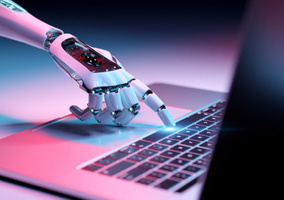Charities must adopt artificial intelligence (AI) in a way that does not lose what is unique about the sector, an event has heard.
Speaking at an All-Party Parliamentary Group on Charities and Volunteering meeting yesterday, sector expert Zoe Amar said AI is rapidly evolving and “will undoubtedly affect the charity sector and the people it supports”.
She said: “I think there is something here about how we can adopt these technologies in a way that means we do not lose what is truly unique about our sector.
“So, I see our sector as being very high touch. It offers people the chance to feel seen and supported.”
Amar, who chairs the Charity Digital Code of Practice, said the sector’s uniqueness was around its human connection and quality of support.
“It makes us all evaluate what within our organisations is truly valuable” and what the sector offers as a whole, she said.
Unified sector response to AI
Amar said charities needed to work together to navigate the potential risks and challenges of AI.
She said the charity sector is “broad church” but that it should identify where AI can make the biggest difference and perhaps be adopted in an inclusive way.
“Charities can harness AI’s potential to help them achieve their visions and make a positive difference,” she said.
“Whilst AI offers exciting possibilities, we know that those at the sharp end of social justice could be adversely affected by it.
“So, AI adoption could have a huge impact on those whom civil society supports but also have significant consequences for civil society itself.
“Most charities recognise AI is relevant but feel ill-prepared to start hindered by barriers like the cost-of-living crisis and digital funding shortages.
“Additionally, we do not yet have a unified sector response to AI, which is a significant challenge.
“Unlike the education sector’s collaborative methods through bodies such as AI for Education, the charity sector does not yet have a cohesive response to AI.”
Meanwhile, Nesta foresight engagement lead Louis Stupple-Harris, said AI would have “a really big impact on charities and we need to make decisions about how we're going to approach them and try to shape them as well as a sector”.
He said the adoption of AI could create risks of bias, possible changes to jobs, and challenges around keeping humans involved at all times.
“We've got a critical moment now, before they develop further and quickly become very popular in charity, that I think we should be using this time to think about how we feel about the issues inherent in these tools,” he said.
Potential job losses
Also at the event, Charity Excellence founder Ian McLintock said AI offered advantages such as being able to look up answers to out-of-hours queries, for example about Charity Commission guidance.
Nonetheless, he said “where there is the human touch, then you need a human”, such as on certain charity helplines.
He therefore said that while AI could be used to ease the sector’s workload and enhance its capabilities, the technology should not be replacing people.
“People are very concerned about job losses [but] I absolutely do not see any job losses in the charity sector,” he said.
He said there could be “very big changes in jobs in the charity sector” driven by demand for services but not staffing losses as such.
McLintock added that it was “particularly critical” the sector does not disenfranchise those who are vulnerable and not engaged in emerging technologies.
Related Articles










